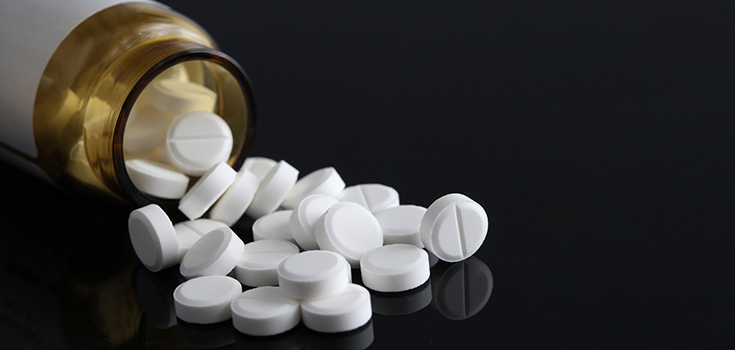Common Aspirin Can Cause Intestinal Bleeding, Deadly Stroke

Most people have taken an aspirin at one point or another in their life. Whether it was for a headache, a fever or any other pain, its typical use as a popular drug is something almost pervasive in the modern West.
Aspirin is also recommended to older patients as a daily use treatment for inflammation and heart health, but there are a number of considerations that should be pointed out when accepting or advocating the use of aspirin in general. In ancient times, physicians would use willow tree bark, which actually contains the salicylic acid — the same ingredient used to synthesize aspirin today.
Traditional physicians would use this as a natural treatment for aches, pains and fever. Despite the fact that this is a legitimate natural cure, aspirin itself is chemically manufactured and often comes with a number of side effects.
The most common of these is gastrointestinal disturbance, often causing stomach ulcers and intestinal bleeding. Numerous studies have been conducted on daily aspirin use for over two decades, with some further shocking conclusions.
Those on daily aspirin regimens had a twofold increase in hemorrhagic brain strokes, which cripple and kill. What’s more? Fatal heart attacks were actually not reduced at all by taking low dose aspirin daily. The ‘aspirin a day’ method is supposed to help prevent heart ailments in people with heart conditions, and has been popularly pushed as a positive prevention measure for artery clogging.
It’s expected that a routine aspirin user is subjecting themselves to these risks more often by doing so.
Aspirin has also been known to cause tinnitus when used in large doses or used routinely, and has been linked to the development of hearing loss. Aspirin also cannot be mixed with certain drugs, as they can have adverse interactions with eachother. Some of these include antidepressants like Prozac, along with a number of others.
Those with allergic reactions to aspirin can also have adverse reactions to taking aspirin. Reye’s syndrome, which is potentially fatal, has also been linked to aspirin use in young people.
Aspirin interferes with the blood’s clotting action, which can sometimes occur within the blood vessels themselves. This usually happens when the arteries are subject to fatty buildup that damages the arteries, causing blood clots that block out the flood flow to the heart.
In the case of aspirin, the ‘treatment’ itself seems to be addressing a symptomatic issue rather than the root of the problem. Damaged arteries that are clogged with fatty deposits ultimately cause the vessels to be blocked and prevent blood flow. Rather than simply making the blood flow thinner and easier, the root problem of the clogged passages must be addressed, otherwise the victim is still all the more susceptible to heart failure and disease.

Common sense would dictate that humans should not consume products containing that much acid on a daily basis for any reason-no matter what the physicians say.
Physicians have their titles because their livelihoods depend on thrusting speculative treatments, right or wrong, on their patients. This article did not mention the other components of common aspirin; the binders,coatings, and fillers. People can have digestive upset if allergic to common binders.
What is the healthier alternative to aspirin?
I have been on a low dose aspirin regiman for a few years for anti stroke and heart attack purposes. NOW, you say, just the opposite? Tell me an alternative please.